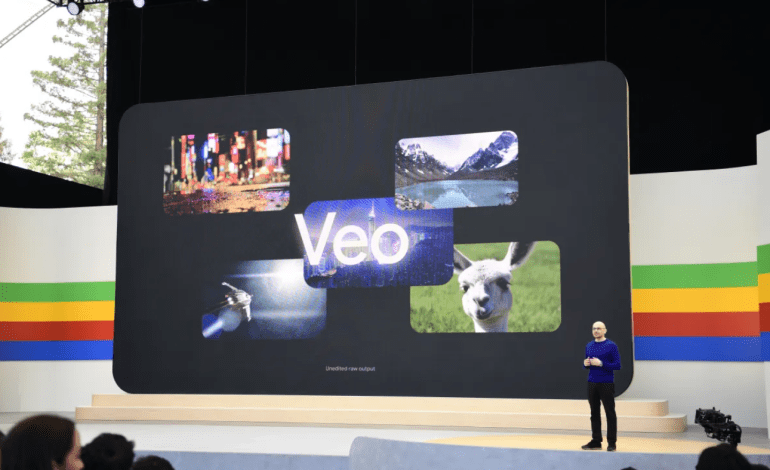- Google introduces Veo, an AI model for crafting 1080p video clips from text prompts, challenging OpenAI’s Sora.
- Veo showcased at Google I/O 2024, demonstrating capabilities in capturing diverse visual styles and dynamic edits.
- Utilizes extensive training data, potentially including YouTube content, subject to agreements with creators.
- Addressing ethical concerns, Google implements filters and labels for AI-generated content.
- Gradual rollout planned, emphasizing collaboration with stakeholders for responsible AI development.
Main AI News:
Google Veo makes a bold entrance into the realm of AI-generated video, marking a significant development unveiled at Google I/O 2024. With Veo, Google aims to challenge OpenAI’s Sora by introducing an AI model capable of crafting 1080p video clips, each approximately a minute long, based on a text prompt. This innovation, showcased at the developer conference, showcases Veo’s ability to capture various visual styles and cinematic elements, including landscapes, time lapses, and dynamic edits.
Demis Hassabis, the head of Google’s AI R&D lab DeepMind, highlighted the potential of Veo, stating, “We’re exploring features like storyboarding and generating longer scenes to see what Veo can do.” This endeavor signifies Google’s commitment to advancing video generation technology beyond its earlier endeavors with Imagen 2-based tools.
Douglas Eck, leading research efforts at DeepMind in generative media, presented select examples demonstrating Veo’s capabilities. Notably, an aerial view of a bustling beach showcased Veo’s prowess in capturing intricate details and dynamic scenes, surpassing rival models. Eck emphasized Veo’s extensive training data, hinting at its utilization of resources like YouTube content, albeit within agreed-upon terms.
Despite Google’s strides in AI innovation, concerns linger regarding data usage and ethical implications. While Google assures adherence to agreements with content creators, questions arise regarding user consent and data ownership. The company’s initiatives to address ethical concerns, such as implementing filters and labeling AI-generated content, underscore its commitment to responsible AI development.
Looking ahead, Google plans to gradually introduce Veo to a select group of stakeholders, emphasizing collaborative efforts to address emerging challenges. While Veo exhibits remarkable potential, acknowledging its imperfections is crucial. As Google refines Veo and integrates it into platforms like YouTube Shorts, the future of AI-driven video creation promises exciting possibilities in the filmmaking landscape.
Conclusion:
Google’s unveiling of Veo signifies a significant advancement in AI-generated video technology. With its capabilities and planned gradual rollout, Google is poised to reshape the market landscape, offering filmmakers and content creators innovative tools while addressing ethical considerations surrounding data usage and content ownership. This move underscores Google’s commitment to responsible AI development and sets the stage for transformative possibilities in the filmmaking industry.

